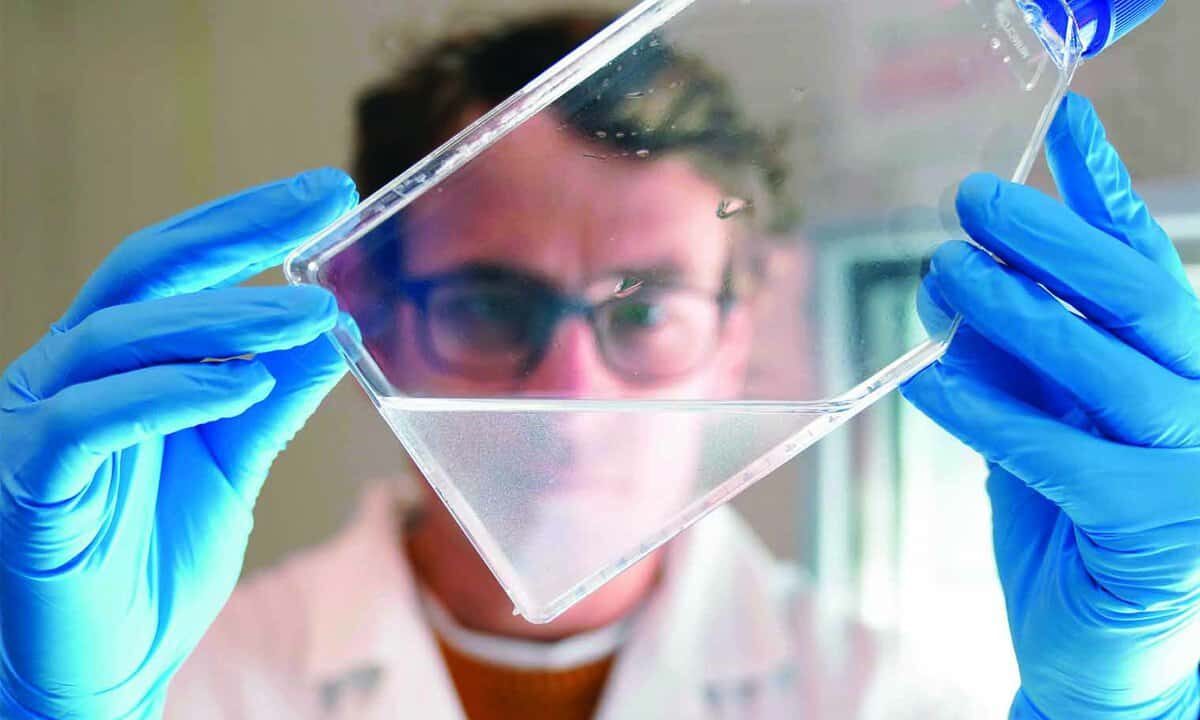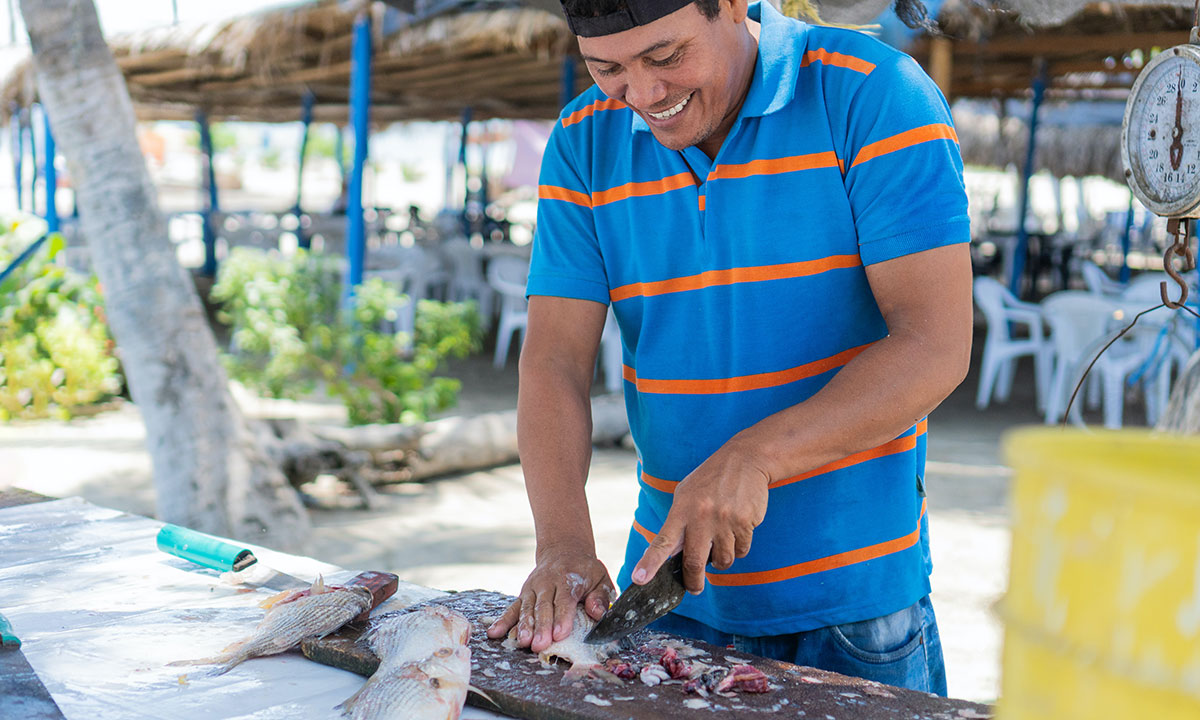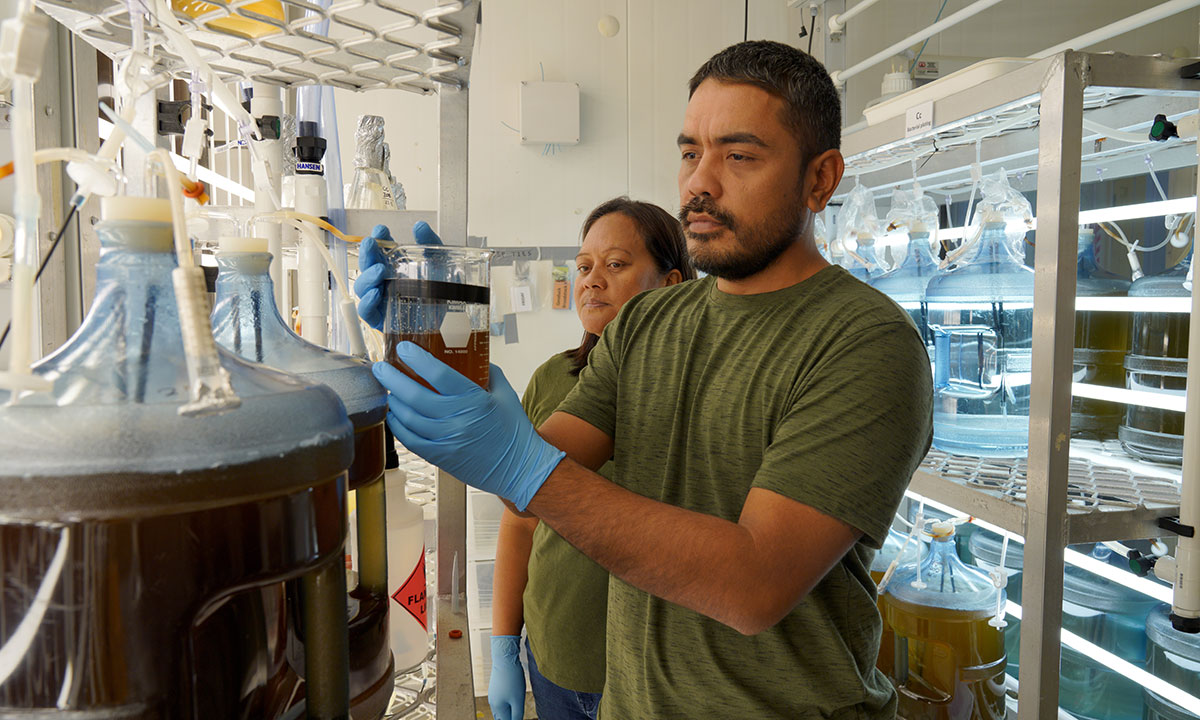Food Safety Focus
Understanding, predicting and controlling seafood safety threats to protect the wellbeing of people and communities.
Food safety is critical to our welfare and central to the prosperity of people in New Zealand and throughout the world. Growing in the ocean, seafood faces some unique food safety challenges, like naturally occurring toxins produced by microalgae that can contaminate fish and shellfish. This poses a threat to the health of people who are harvesting that food to eat it, and the business of commercial producers who grow or catch it for domestic and export markets. Climate change is exacerbating this threat by increasing the frequency and duration of harmful algae blooms, and the habitable range of tropical foodborne pests and pathogens.
Cawthron is national leader in New Zealand’s food safety system, which is reflected in the fact that close to a third of Cawthron staff work in the field of food safety research and monitoring.
Home to the national Seafood Safety Research Platform, Cawthron’s Chief Science Officer Dr Cath McLeod and Food and Bioactives Manager Dr Tim Harwood have played integral role in developing the recently launched Food Safety Science Plan for Aotearoa New Zealand.
Empowering Māori communities with the knowledge and tools to monitor food for shellfish toxins is a growing area of focus for Cawthron Institute. Cawthron scientists have formed a partnership with a number of iwi (Māori tribal groups) to establish a Paralytic Shellfish Poisoning (PSP) monitoring project that can be led by Māori communities for the purpose of keeping their own people safe, particularly when collecting seafood for large cultural gatherings at their marae (meeting houses) like funerals, meetings, and community events.
Cawthron Institute has already supplied one iwi group with a PSP testing kit as part of a pilot project which includes a digital scanner that can confirm the presence of harmful toxins. Cawthron researchers held a knowledge sharing session with the community and provided education about PSP and how to use the testing kits. A much larger group of iwi are interested in similar technology solutions, but currently a lack of funding prevents the project from being expanded. Read more about this project here.
Cawthron scientists are also supporting a New Zealand Food Safety Science and Research Centre project with the Whakakī Lake community near Wairoa to implement community-led monitoring for cyanobacterial toxins (cyanotoxins). This project received funding through the Government’s Vision Mātauranga Fund and aims to help the lake community better understand the risks posed by the toxins which are present in the tuna (eels) harvested there. In addition to working with the Whakakī Lake Trust, the project will be run in partnership with local iwi including Ngāti Hinepua, Ngāti Hine and Ngai Teipu. Read more here.
Being located in the warmer waters of the tropics makes Pacific Island communities particularly vulnerable to food safety threats. That heightened risk combined with their reduced access to technology and facilities for monitoring and laboratory testing makes keeping communities safe a challenge.
Cawthron is working with several nations in the Pacific to support their food safety systems, including the Ministry of Marine Resources in the Cook Islands. Ciguatera poisoning is caused when people eat fish that have consumed toxic microalgae and it is present in the Pacific. Our team have been working with Ministry officials to sample water off the picturesque reefs of Rarotonga. They’re using mesh screens to collect eDNA samples from the water without damaging the reef ecosystem. These samples are then sent to Cawthron’s labs to test the samples for toxic microalgae, which informs the risk of human illness. Our ultimate goal is to support the Cook Islands in developing monitoring programmes using this simple and powerful tool.
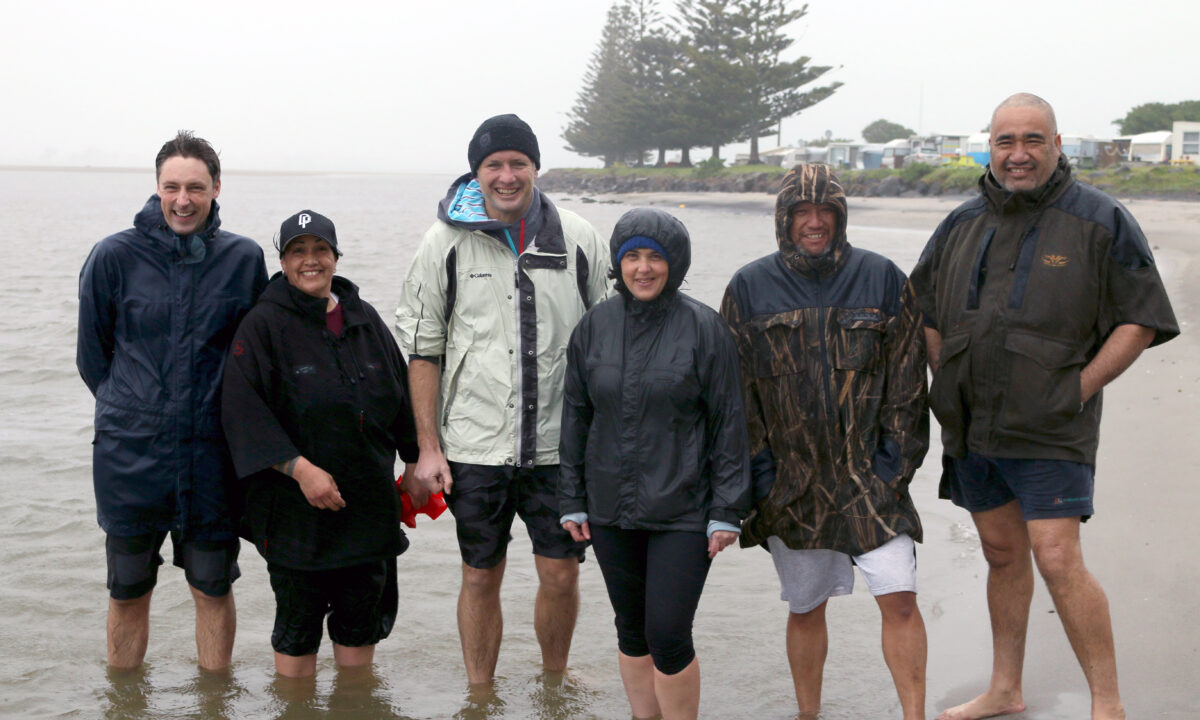
Image: Cawthron Institute. Kaitiaki from Te Arawa Ki Tai and Garston Smith (second from right) from Otawhiwhi Marae with Cawthron food safety scientists collect pipi from Little Waihi estuary near Maketū for PSP sampling.
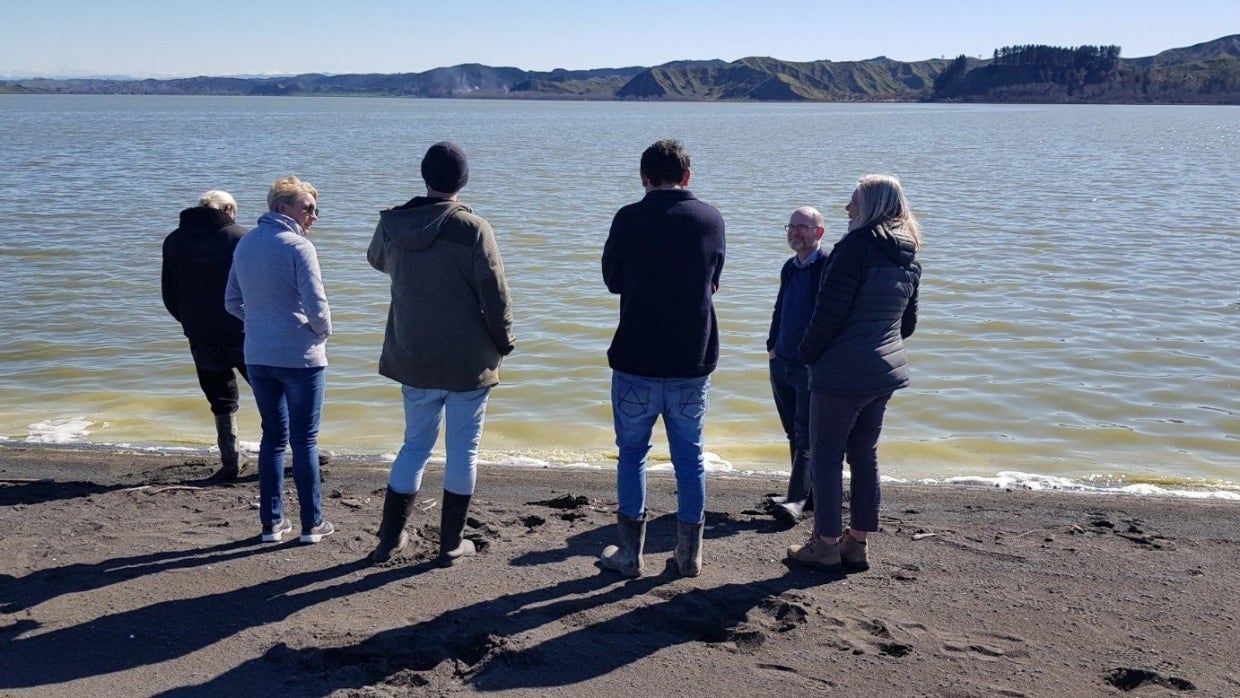
Image: NZ Food Safety Science Research Centre. Left to right: Pani Hook (Whakakī Lake Trust), Cath McLeod (Cawthron), Jonathan Puddick (Cawthron), Trevor Waikawa Jr (WLT), Nigel French and Wendy Newport-Smith (NZ Food Safety Science Research Centre).
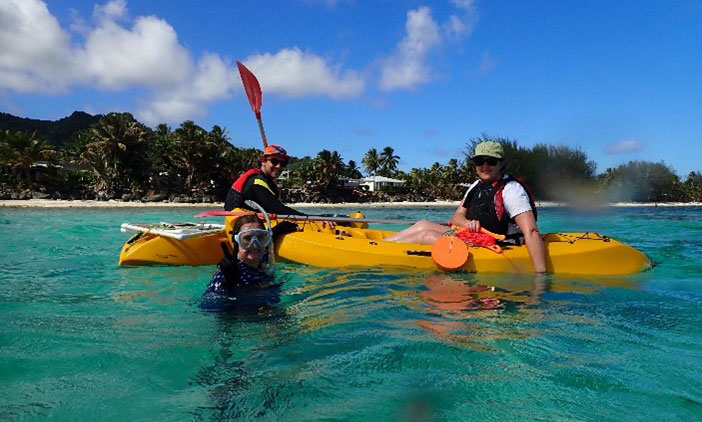
Image: Cawthron Institute. Cawthron food safety researchers work alongside officials from the Ministry of Marine Resources in the Pacific Islands to sample water on the reef for evidence of ciguatera poisoning.
Other projects that are supporting thriving communities…
Climate Resilient Pacific Communities
Science solutions that support Pacific Island communities as they face the challenges of climate change, biodiversity loss and food security.
Contact us
Do you have a query about investing in science solutions that support thriving communities? Get in touch with our team using the form below.
